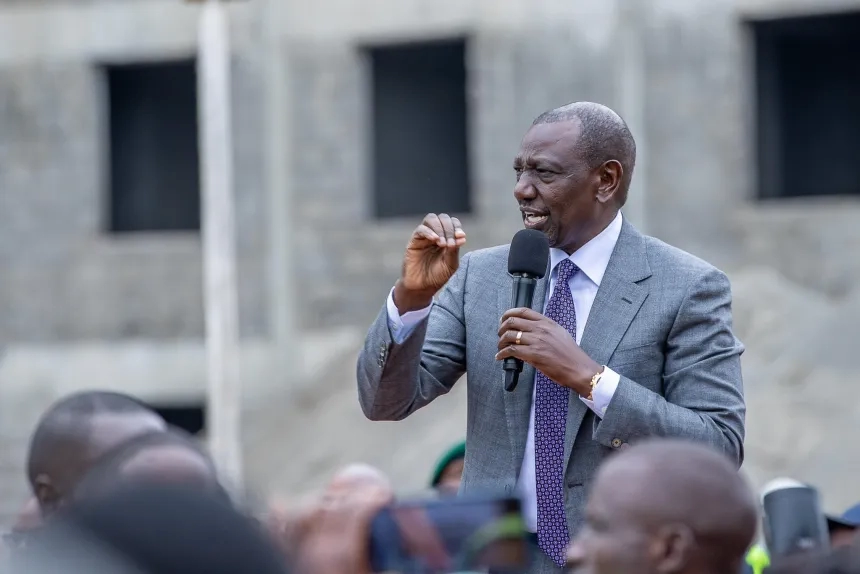President William Ruto has restated his administration’s unwavering commitment to delivering free, accessible, and high-quality education for all Kenyan children, terming it “the greatest gift a society can give to its young people.”
Speaking during a Sunday church service at ACK St Martin’s Light Industries Church in Kariobangi, Nairobi, the President emphasized that education remains a key pillar in Kenya’s development agenda. He outlined a series of government initiatives aimed at expanding access and enhancing learning conditions nationwide, including the construction of new classrooms to reduce overcrowding and increased investment in public schools.
“Free primary education is the right of every Kenyan,” said Ruto. “We have taken significant steps over the last two years to ensure that education is universal and inclusive.”
To further support this mission, Ruto announced that over 70,000 teachers have been hired since 2022, with plans to employ an additional 24,000 educators in the coming year. He also highlighted the signing of a long-term Collective Bargaining Agreement (CBA) with teachers, designed to ensure labor stability in the education sector until 2029.
His remarks were echoed by Deputy President Kithure Kindiki, who on Saturday assured the public that the Kenya Kwanza administration has no intention of reducing funding for free primary and secondary education. He reaffirmed the government’s dedication to maintaining and expanding the gains made in the sector since 2022.
However, the conversation around education funding has sparked debate following recent comments by Treasury Cabinet Secretary John Mbadi. Appearing before a parliamentary committee, Mbadi cautioned that the government may no longer be able to fully finance free education due to budgetary constraints. He suggested that the financial burden may increasingly fall on parents as the state struggles to meet the full cost per student.
Despite the controversy, Mbadi later clarified that while education remains a top priority, fiscal limitations make it unrealistic to promise complete capitation for every learner — a concern he believes some leaders are unwilling to address honestly.
As the government balances competing priorities, the message from the President remains clear: the education of Kenya’s children will not be compromised, and efforts to make learning inclusive, relevant, and sustainable will continue.





